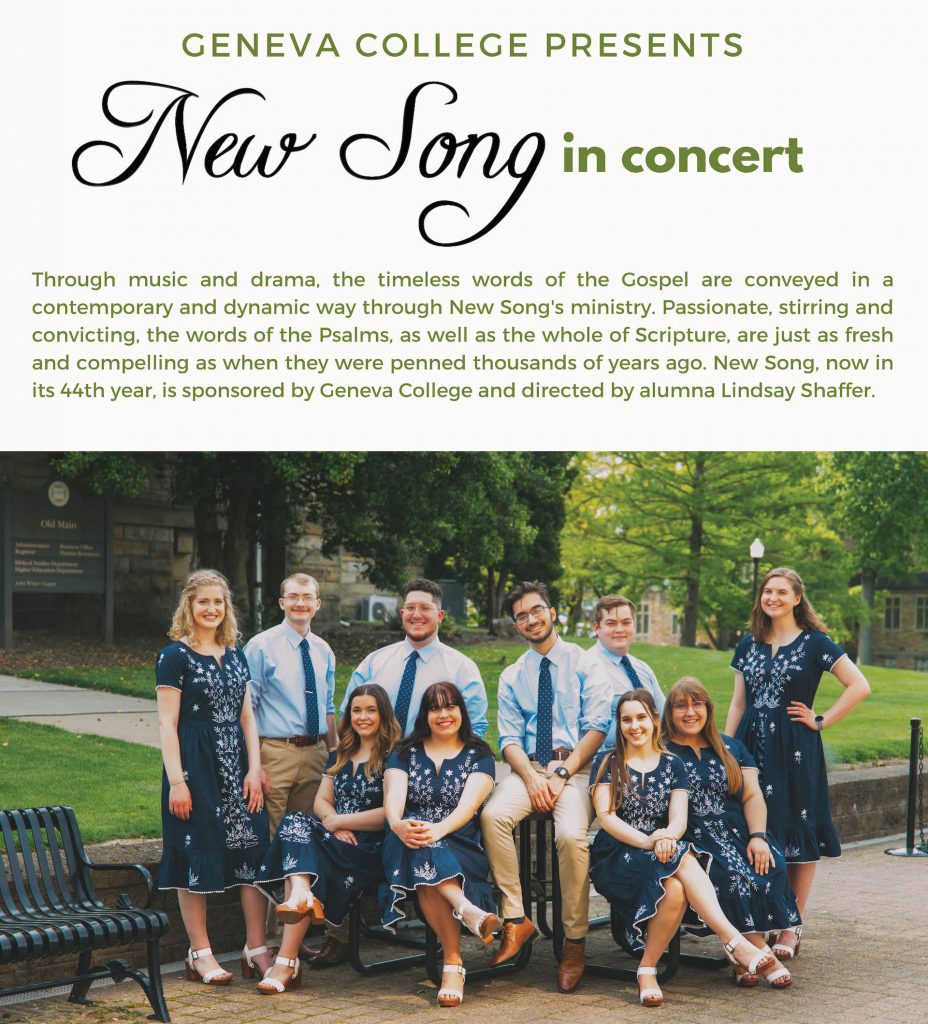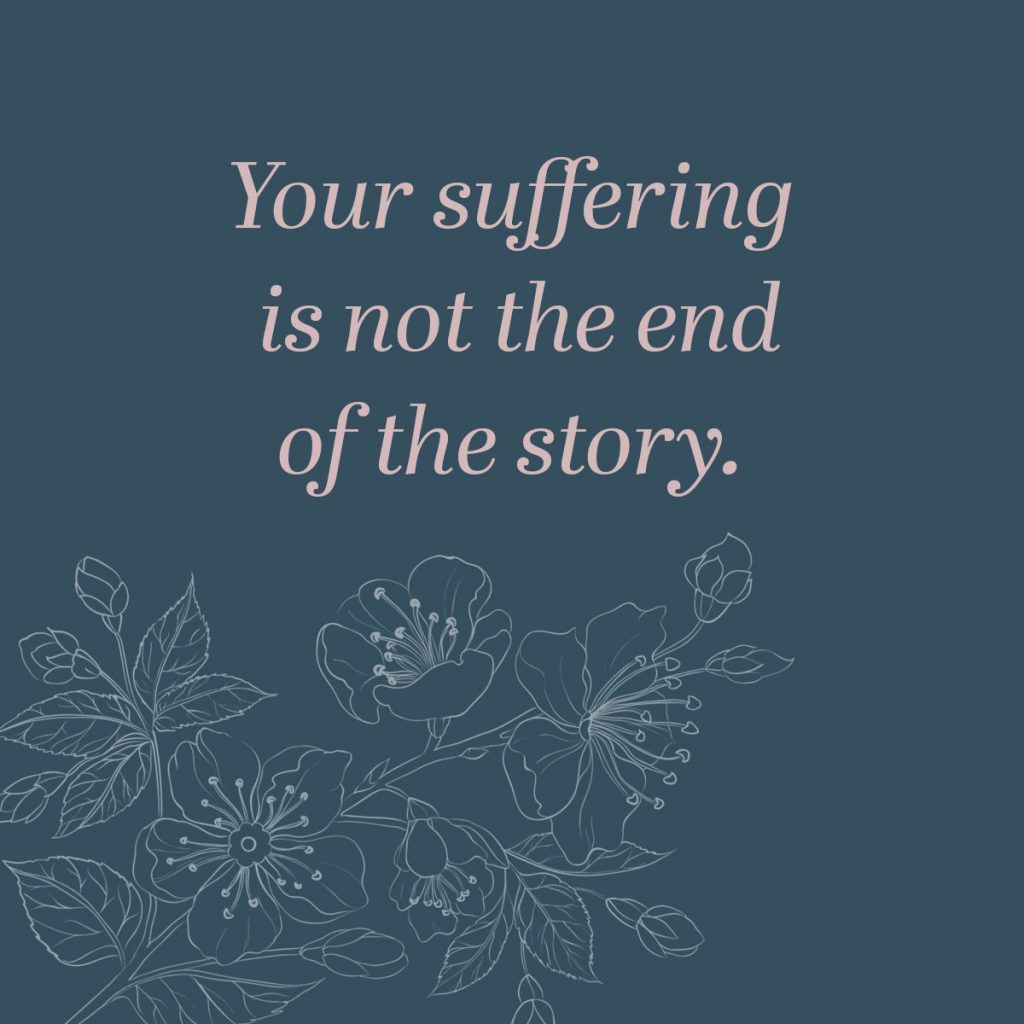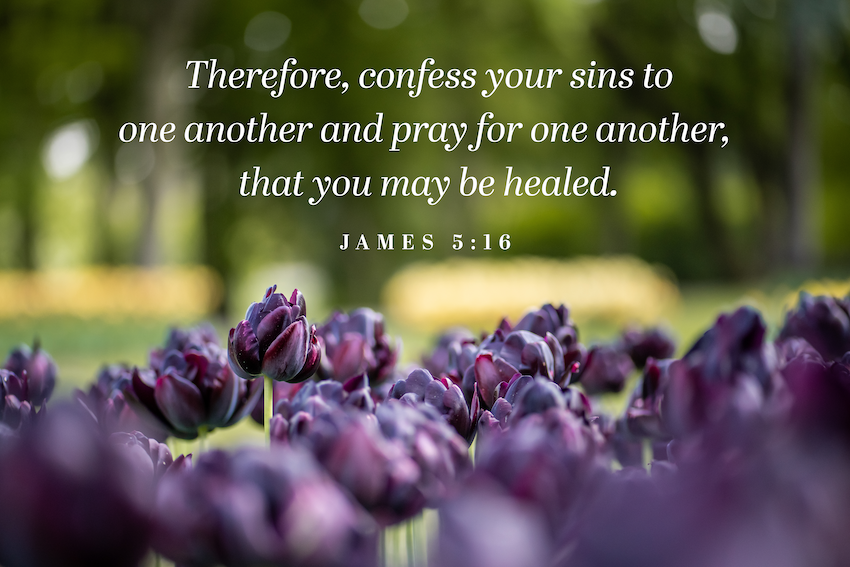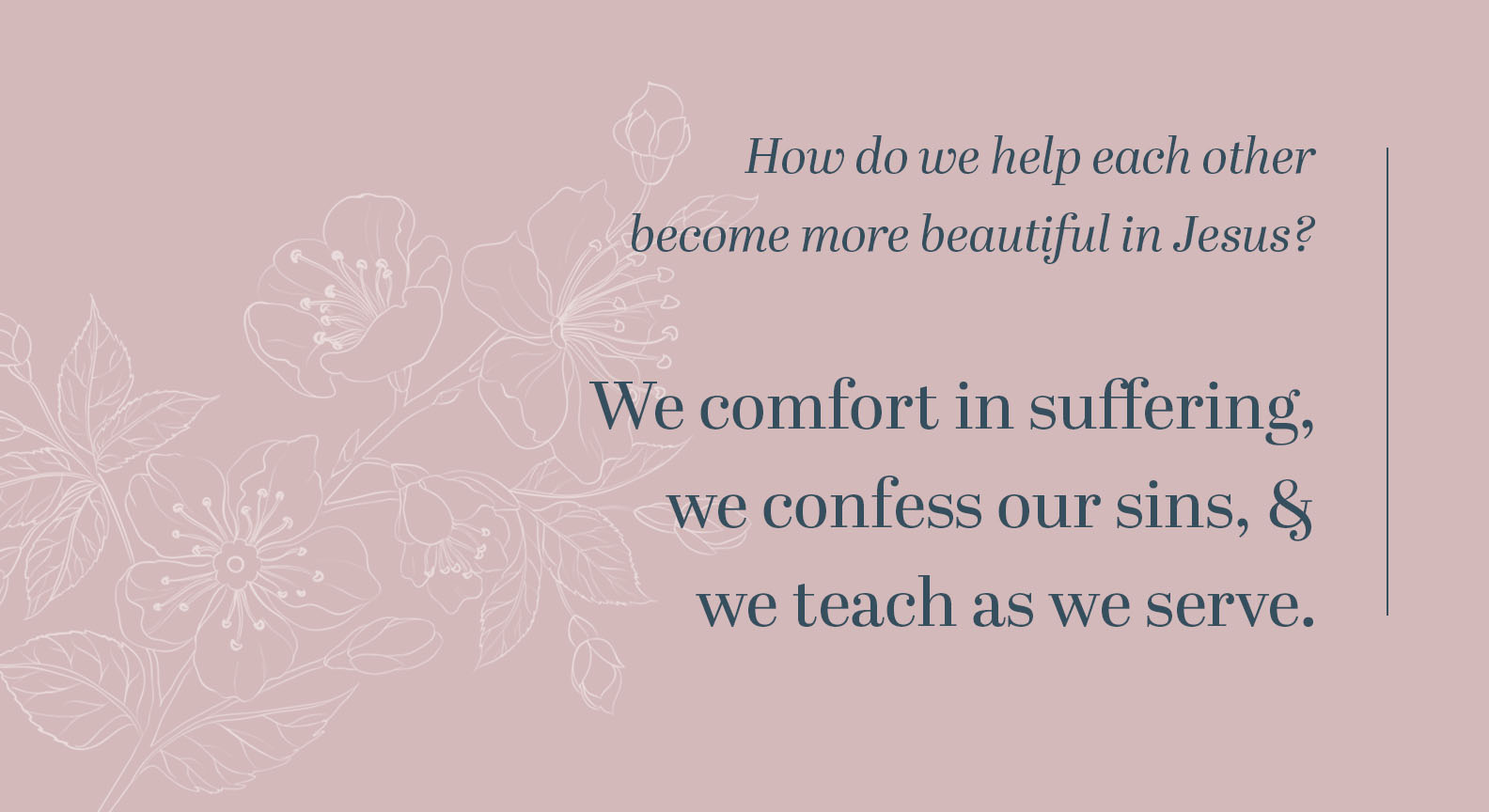Reflections on Singing Brahms
Dear Congregation,
On Saturday evening I had the opportunity to sing in the Brahms’ Requiem at Notre Dame with all seven of my children (and around 100 other singers!). (A link to the video is below)
Rehearsing and performing the Requiem has been good for my soul in several ways — one of which has been the constant meditation on the texts that we are singing. Let me walk you through the Requiem, if you are so inclined to go for this walk. I am trying to learn to express my emotions — and this is one way that I am able to do so.
1. Selig sind, die da Leid tragen…
Blessed are they that mourn, for they shall be comforted (Matthew 5:4). The opening movement of the Requiem provides the overarching statement of the theme of the whole piece. Too often we think of blessing only in terms of the “good things” of life — but Jesus says “blessed are they that mourn.” What do you do when it hurts? You mourn. You lament. Lament is proper for those who are stricken by grief. And indeed, this is where I have been living for the last year.
They that sow in tears shall reap in joy. They that go forth and weep, bearing precious seed, shall doubtless come again with rejoicing, bringing their sheaves with them (Psalm 126:5-6). Weeping lasts for a night, but joy comes in the morning (as Emorja Roberson’s opening gospel song reminds us!). There is a future for those who weep.
2. Denn alles Fleisch, es ist wie Gras
For all flesh is as grass, and all the glory of man as the flower of grass. The grass withers, and the flower thereof falls away (1 Peter 1:24). This theme is propounded four times in second movement — each time in unison. The effect is not exactly monotonous (Brahms is too good a composer to feel monotonous!) — but you start thinking, “you already said that!” The first two uses of the them are woven together with James 5:7 — Be patient therefore, brethren, unto the coming of the Lord. Behold the husbandman waits for the precious fruit of the earth, and has long patience for it, until he receive the morning and evening rain. But then he comes back again (twice) to Denn alles Fleisch… and you start to realize that we are stuck in the middle of a never-ending story that always ends in death. The glory of man fades and withers.
Aber (but!)
But the word of the Lord endures forever (1 Peter 1:25). And what is the word of the Lord for “alles Fleisch”? And the ransomed of the Lord shall return, and come to Zion with songs and everlasting joy upon their heads: they shall obtain joy and gladness, and sorrow and sighing shall flee away (Isaiah 35:10). Notice the importance of the future tense. This is the promise. This is the word of the Lord that comes to those who mourn — to those who are presently living in the misery of this age.
3. Herr, lehre doche mich
The baritone soloist (the incomparable Emorja Roberson) sings the first person singular (with echoes from the chorus).
Lord, make me to know mine end, and the measure of my days, what it is: that I may know how frail I am. Behold, thou hast made my days as an handbreadth; and mine age is as nothing before thee. Surely every man walks in a vain show: surely they are disquieted in vain: he heaps up riches, and knows not who shall gather them. And now, Lord, what do I wait for? My hope is in thee (Psalm 39:4-7). What is the point of life in this vale of tears? The final “Nun Herr, wes soll ich mich troesten” (now Lord, what do I wait for?) is a plaintive cry, bouncing from part to part with some of the largest leaps (intervals) in the whole piece mingled with lots of tight harmonies that express the dissonance of our experience of waiting — now Lord, what do I wait for?
Then the soloist sits down and the chorus takes over (as if the soloist is demonstrating the point — he knows not who shall gather them…):
My hope is in thee — an incredible series of triplets running against quarter/half note rhythms (I think that I finally got it [partly] right in the concert). But that glorious confession of hope leads to the promise:
The souls of the righteous are in the hand of God and there shall no torment touch them (Wisdom of Solomon 3:1). The Wisdom of Solomon is not in the canon of scripture — but the author was a faithful believer, and the sentiment here is exactly right! Even death is not the end. Here Brahms launches into a magnificent fugue where the parts keep swirling back and forth (the tenors have the privilege of opening the fugue Der Gerechten Seelen — the souls of the righteous). This is both the most difficult part of the whole Requiem, and the most amazing when you get to the point where you can actually hear what is going on! To be in the hand of God — where no torment can touch you — is characterized musically by a maelstrom of sound and ever-changing lines where it starts the same as last time — but goes a different direction, or lands a third higher (or lower). In other words, to be in the hand of God does not mean utter stillness and calm! The storm still rages! But you are in the hand of God. And so no torment (keine Qual) can touch you.
4. Wie Lieblich sind deine Wohnungen, Herr Zabaoth!
Here at the very center of the Requiem, Brahms placed Psalm 84:1,2,4 (You are welcome, Sally) — How lovely are thy tabernacles, O Lord of hosts! My soul longs, yea, even faints for the courts of the Lord: my heart and my flesh cries out for the living God. Blessed are they that dwell in thy house: they will always be praising thee. This is the heart of the Requiem. Where does your soul find rest? What do your heart and your flesh cry out for? Do you cry out for the living God?
And it is important to note that Brahms ends the movement back with verse one: “How lovely are your tabernacles!” This theme will remain central through the rest of the piece — with the theme of the heavenly city.
5. Ihr habt nun Traurigkeit
Anne Slovin, the soprano soloist, did a lovely job with this movement. And ye now therefore have sorrow: but I will see you again, and your heart shall rejoice, and your joy no man taketh from you (John 16:22). Behold with your eyes, how that I have but little labor, and have gotten unto me much rest (Ecclesiasticus 51:27).
The chorus is largely in the background singing the refrain: As one whom his mother comforts, so will I comfort you (Isaiah 66:13). This is a lovely reminder that while my own mother died 18 years ago, the God of all comfort continues to comfort his people — and, as this is taken into the voice of the chorus — we, together, as citizens of the heavenly Jerusalem are the means of that comfort to one another.
6. Denn wir haben hie keine bleibende Statt
The chorus opens with the statement, For here we have no continuing city, but we seek one to come (Hebrews 13:14). And then the baritone soloist interjects, Behold, I show you a mystery: we shall not all sleep, but we shall all be changed, in a moment, in the twinkling of an eye, at the last trump: for the trumpet shall sound, and the dead shall be raised incorruptible, and we shall be changed. Then shall be brought to pass the saying that is written, [At this point the soloist sits down — he has introduced the text, but the chorus, who have been echoing his lines up until this point, will now announce the message] Death is swallowed up in victory. Death, where is thy sting? Hell, where is thy victory? (1 Corinthians 15:51-52, 54-55). Brahms has the singers almost throw their words at Death and Hell! And then, after a massive crescendo of shouting at the devil with all your voice, the altos lead forth with a new fugue:
Lord, you are worthy to receive glory and honor and power: for you have created all things, and for your pleasure they are and were created (Revelation 4:11). This fugue (mercifully) is slightly easier than the earlier one, though still with all sorts of twists and turns — because the glory and honor and power of God is no less beautiful and complex than being in the hand of God (#2). Indeed, there are some very similar features of these two fugues, which probably reflect the fact that being in the hand of God (#2) is exactly the same thing as proclaiming his worthiness!
7. Selig sind die Toten
Blessed are the dead, which die in the Lord, from henceforth. Yea, says the Spirit, that they may rest from their labors; and their works do follow them (Revelation 14:13). I suspect that we all sighed with relief when we got to this point — because while the seventh movement is just as beautiful as the text, as long as you remember the eighth note triplets for the “selig sind die Toten” in the middle, the rest is smooth sailing. Which is fitting. As long as you remember “blessed are the dead which die in the Lord” — the rest is “smooth sailing” (so long as you remember that “smooth sailing” is the same thing as “the obedience of faith” that Paul speaks of in Romans 1 — you still have to hit the right notes at the right time!).
Thirty years ago I sang the Brahms’ Requiem in college, and it instantly became my favorite choral piece that I ever sang — so when I had a chance to sing it with all of my children, I could not say no. But singing Brahms at the age of 53 is very different from the age of 21. Then it was powerful and beautiful. Now it is filled with so much more meaning and emotion. I have learned so much more of the truth of the words that I could only feel so much more deeply the power of the music to embody the words — which could only happen because a hundred and fifty people came together to join body and soul in the work of producing this.
It was a special privilege to be able to sing under the direction of Dr. Mark Doerries (who has taught all my children for so many years!) and to be able to sing a composition by Dr. Emorja Roberson (who also taught many of my children when he was a student at Notre Dame). I am profoundly grateful for the opportunity.
(If you want to read Dr. Doerries comments on the Requiem — he includes some reflections on his own encounter with cancer — Saturday was the two year anniversary of his surgery)
https://performingarts.nd.edu/meet-the-artist/brahms-mark-doerries/
If you would like to hear it, the Sacred Music Department at Notre Dame has posted the video.
(Fiona is on the left side in the soprano sections — then you’ll see Robert, William, and Peter in the bass section — I’m the bouncy tenor — then Bee, Lorna, and Geneva are with the altos).
If you want to see an English translation alongside the original German:
https://www.cpdl.org/wiki/index.php/Ein_deutsches_Requiem%2C_Op._45_(Johannes_Brahms)
Blessings,
Peter



 I learned that all the losses had a purpose—so I could be there to comfort my friends. God has helped me as a young adult to continue doing that. He has given me comfort to give others. That’s His goodness! Suffering you experience is an opportunity to run to the Father and be comforted. And others’ suffering is an opportunity to share God’s comfort. Your suffering is a commission. Because you’ve suffered, you’re a messenger of hope and comfort to a world without hope and full of false comforts.
I learned that all the losses had a purpose—so I could be there to comfort my friends. God has helped me as a young adult to continue doing that. He has given me comfort to give others. That’s His goodness! Suffering you experience is an opportunity to run to the Father and be comforted. And others’ suffering is an opportunity to share God’s comfort. Your suffering is a commission. Because you’ve suffered, you’re a messenger of hope and comfort to a world without hope and full of false comforts.



